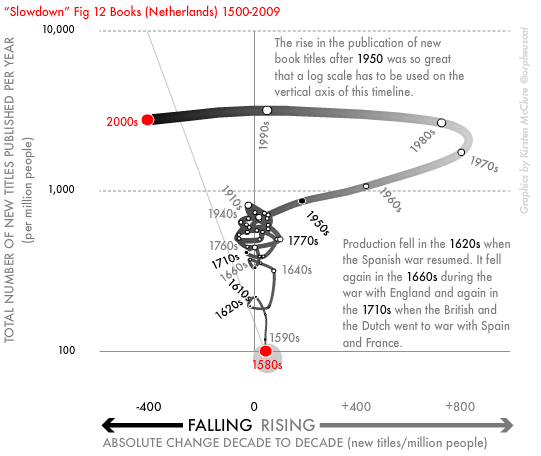Permacrisis: A Plan to Fix a Fractured World – Review

In Permacrisis: A Plan to Fix a Fractured World, Gordon Brown, Mohamed El-Erian and Michael Spence put forward a strategy on growth, economic management and governance to prevent crises and shape a better society. Danny Dorling contends that the book’s suggested policy solutions for economic and social problems, stemming from a hypercapitalist ethos, would entrench rather than reduce inequalities.

Permacrisis: A Plan to Fix a Fractured World (cover)
Permacrisis: A Plan to Fix a Fractured World by Gordon Brown, Mohamed El-Erian and Michael Spence, with Reid Lidow. Simon & Schuster. 2023.
Permacrisis is a remarkable book, but not for the reasons its authors might have hoped. It explains brilliantly why so much of our politics and economics is in such a terrible mess. The book argues that economic growth is progress, that we need this type of growth above all else to prosper, and that with just a minimal extra layer of regulation, such growth can spread the good life to the masses. Two quotations from Permacrisis, I believe, sum up both the core mantra of the three authors and what they think of as good growth and the good life. First, the mantra:
”You see, growth is progress. Growth is what has given the world the tablet you’re reading this book on, the medicines by your bedside, the economic breakthroughs that have lifted billions out of poverty. The problem is how growth has been achieved […] the old unsustainable “profits over people” methods of the past have outstayed their welcome and today are not just failing individuals and our environment but national economies” (14).
[The authors] assume that the development of a tablet computer is due to economics rather than developments in universities and other state-funded bodies which created the micro-components that that enable a computer to be transmuted into tablet form.
The authors make a series of assumptions that help to explain why people like them think like they do. For example, in the above quotation, they assume that the development of a tablet computer is due to economics rather than developments in universities and other state-funded bodies which created the micro-components that that enable a computer to be transmuted into tablet form. Computers, and electricity before that, were not products of “the market” but technological inventions that have been marketised.
Perhaps they choose to assume their reader uses a tablet rather than a print copy because it is impossible to argue that the invention of the book, or typesetting or the printing press, was due to economic growth. This is because it happened long before the concept of economic growth existed, when a group of monks in Korea invented movable type in 1377. Instead, it was economic growth that got us to a state, in the Netherlands in the 1990s, where we were publishing more books than people could read by those purchasing them, peaking at over a thousand new titles a year per million potential readers (see image below). At this point, middle-class Dutch people stopped buying books just to display in their homes, and the publication of new titles plummeted (see Figure 12 below from the book Slowdown).

Figure 12 from the book “Slowdown”
As the above example illustrates, economic growth can produce waste more than uplift and “progress” for the vast majority of people. Similarly, industrialisation reduced life expectancy not just in the mill towns of England, but across India. As I write global life expectancy hovers just above 70. In the US between 2020 and 2021, it dropped from 77 to 76.1, its lowest level since 1996. Most people in the world have far too little, a few have far too much. Social, medical, educational, housing, and cultural progress have all been made when the greediest aspects of market behaviour have been held in check, as the UK’s history of service provision demonstrates. Technological progress has depended on collaboration over profits. Those working in the US and UK produce very few innovations per head, as compared to people in the Nordic countries or Japan. But, the authors of this book appear utterly unaware of such arguments.
As with the tablet, the authors suggest that we have medicines because of economic growth rather than research and innovation; tellingly, the index to the book includes entries for “McKinsey” and “Pacific Investment Management Company (PIMCO)”, but none for “medicine” or “pharmaceuticals”.
As with the tablet, the authors suggest that we have medicines because of economic growth rather than research and innovation; tellingly, the index to the book includes entries for “McKinsey” and “Pacific Investment Management Company (PIMCO)”, but none for “medicine” or “pharmaceuticals”. This choice reveals what the book is actually about: the world of consultancy, international travel, and enormous amounts of money. McKinsey & Company is a global management consulting firm founded in 1926 by a University of Chicago professor (of accounting) that advises people with a lot of money how to acquire more. PIMCO, is an American investment firm that manages about two and a half trillion dollars of capital – to make more for people already rich. There is a pattern here.
Brown, El-Erian, and Spence suggest that, with a little more management by people like them, a little more of their kind of consulting, a little more of what they view as careful investment and better directing the trillions held by the world’s super rich, that we can somehow end the unsustainable “profits over people” behaviour of global economics.
The authors of this book believe that it was economic growth that “lifted billions out of poverty”. This view, along with the other core beliefs in Permacrisis, goes entirely unquestioned. Rather, Brown, El-Erian, and Spence suggest that, with a little more management by people like them, a little more of their kind of consulting, a little more of what they view as careful investment and better directing the trillions held by the world’s super rich, that we can somehow end the unsustainable “profits over people” behaviour of global economics. For them, the crisis is that they are not being listened to enough.
This brings us to how the book figures growth, and a second key quotation. In a long section celebrating the $1.50 Costco hot dog that entices shoppers through its doors, the authors explain their idea of economic growth and why they rate it so highly. Costco is a huge US chain of warehouses that started in 1976 as Price Club. It now has 125 million members, a number rising by around 6 million a year, and accelerating.
“The hotdog with the tantalising $1.50 price gets people in the door. And when they’re in the door, that’s when they see the knife set, back-yard patio set or the vacuum they can’t live without. And this business model has been a winner helping Costco reach a value in excess of $200 billion. Costco’s hotdog is a powerful and tasty reminder that growth isn’t always achieved by innovations developed in a Silicon Valley garage. Sometimes it’s as simple as keeping the price of a hotdog and soda steady – a decision that advances social goals by feeding those seeking an affordable snack, all while helping to power the growth of one of America’s largest companies. Costco’s chief financial officer was asked in late 2022 how long the $1.50 price would last. His response? Forever.” (30).
It is almost shocking to see such blatant endorsement of a particularly destructive form of economic growth, unplanned (at least as far as the consumer is concerned) instant gratification consumption, and such a warped view of social goals (to provide cheap hot dogs to the gullible).
Of the book’s authors – who were brought together by Jonny Geller of the global literary and talent agency, Curtis Brown (298) – one is Chief Advisor to “Allianz, the corporate parent of PIMCO, where he was CEO and co-CIO” (2) and husband of an executive director of Eco Oro Minerals Corp. Another was once UK Prime Minister and worked closely with Ed Balls, whose brother Andrew Balls has been for many decades a Chief Investment Officer of PIMCO (the other co-CIO). The third, who now lives in Milan, joined Oak Hill Capital in 1999 and was awarded a Nobel Prize in economics in 2001. They are what some economists view as masters of the universe: They believe their combined knowledge spans the breadth of global economic expertise: “While our personal and professional experience had natural touch points, like any good corporate merger the overlap and redundancy were minimal” (3). In fact, they are the crisis – and luckily, their beliefs are very far from permanent, sustainable or convincing, no matter how much they signal a sustainable ethos by adding the prefix ”‘eco-” before the ideas they put forward. In this book, they have encapsulated exactly what is wrong with the late twentieth-century hyper-capitalist worldview they champion that seeks to enrich the few and impoverish the rest of society.
Danny Dorling is a professor in the School of Geography and the Environment at the University of Oxford, and a Fellow of St Peter’s College. He is a patron of RoadPeace, Comprehensive Future, and Heeley City Farm. In his spare time, he makes sandcastles. Posted In: Book Reviews | Contributions from LSE Alumni | History | Sociology/Anthropology
For where this review was originally published and a pdf of it click here.